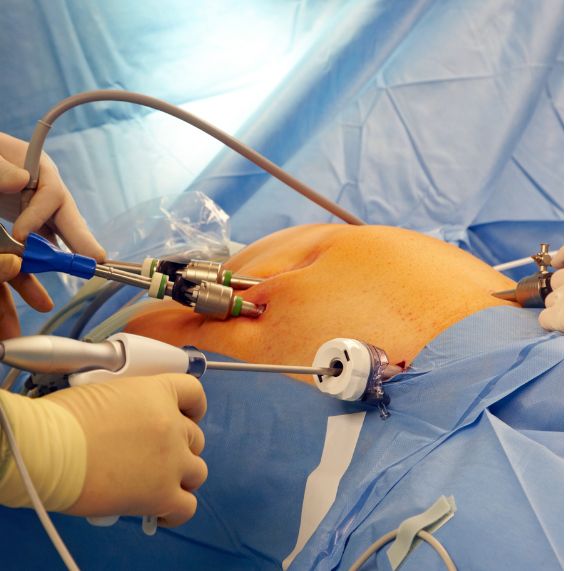Dr Viswanath S specializes in hernia repair surgery, using the latest techniques and technology to ensure a successful outcome. Our minimally invasive laparoscopic approach means less pain, a faster recovery time, and a lower risk of complications.
Dr Viswanath S is one of the best hernia surgeon in Sarjapur Road and HSR Layout. He is having 20+ Years of Experience in this field.

What is Laparoscopic Inguinal Hernia Repair?
Laparoscopic Inguinal hernia repair is similar to other laparoscopic procedures under general anesthesia.
In laparoscopic, also known as minimally invasive hernia surgery, the surgeon makes small incisions (cut) in the abdomen. Through these incisions, the surgeon places the laparoscope, a thin lighted scope. Then, the surgeon places instruments for repairing the hernia through other small incisions in the lower abdomen.
Surgeons usually perform laparoscopic surgery. So, before the surgery, the patient's overall health is assessed. There is no or minimal pain during this surgery.
What are the symptoms of an inguinal hernia?
Not all inguinal hernias have symptoms. Sometimes, symptoms come and go.
You might notice:
● A bulge in your area of groin on either side of your pubic bone.
● A heaviness in your groin.
● Groin pain, especially when straining, lifting, coughing or bending over.
● A sensation of burning or pinching that may radiate through your pelvis or down your leg.
What is the main cause of inguinal hernia?
An inguinal hernia is caused when there’s a weakness or opening in your lower wall of abdominal that allows abdominal tissue to push through.
Why Laparoscopic Inguinal Hernia Repair is done?
Laparoscopic Inguinal Hernia repair is recommended for inguinal hernias that causes pain. It's also recommended for hernias that are strangled. Surgery is always done for inguinal hernias in children.
What are the possible issues of an inguinal hernia?
- Enlargement over time: The pressure of an existing hernia on weakened tissues can have a effect of snowball, making things worse.
- Incarceration: An incarcerated hernia is that can’t be “reduced” —moved back physically into place.
- Small bowel obstruction: If part of your small intestine is herniated and becomes trapped and pinched, it can cause a blockage.
- Strangulation: A strangulated hernia has been cut off from the supply of blood.
How is an inguinal hernia examined?
A physical examination is usually enough to examine an inguinal hernia. Your doctor will try to see and feel the hernia. They may ask you to cough or to bear down as though you were pooping to make the emerge of hernia.
What is the best treatment recommended for an inguinal hernia?
Doctor’s providers recommend surgery for most inguinal hernias, and for all in children and those AFAB.
What will happen if an inguinal hernia is not treated?
Inguinal hernias don’t improve by themselves and usually worsen. You won’t necessarily have complications, but the risk does over time increase. The risk for children is highest because they’re still growing and their hernias at a faster rate will enlarge. Children also tend to have indirect hernias, which would likely to go into their scrotum. An inguinal hernia in a child shouldn’t be left untreated.
How can I decrease my risk of getting an inguinal hernia?
There’s no way to prevent a congenital inguinal hernia (one you’re born with), but you can reduce your risk of acquiring a direct inguinal hernia by reducing wear and tear on your lower abdominal wall.

 Doctor Consultation
Doctor Consultation video Consultation
video Consultation 9880822174
9880822174
